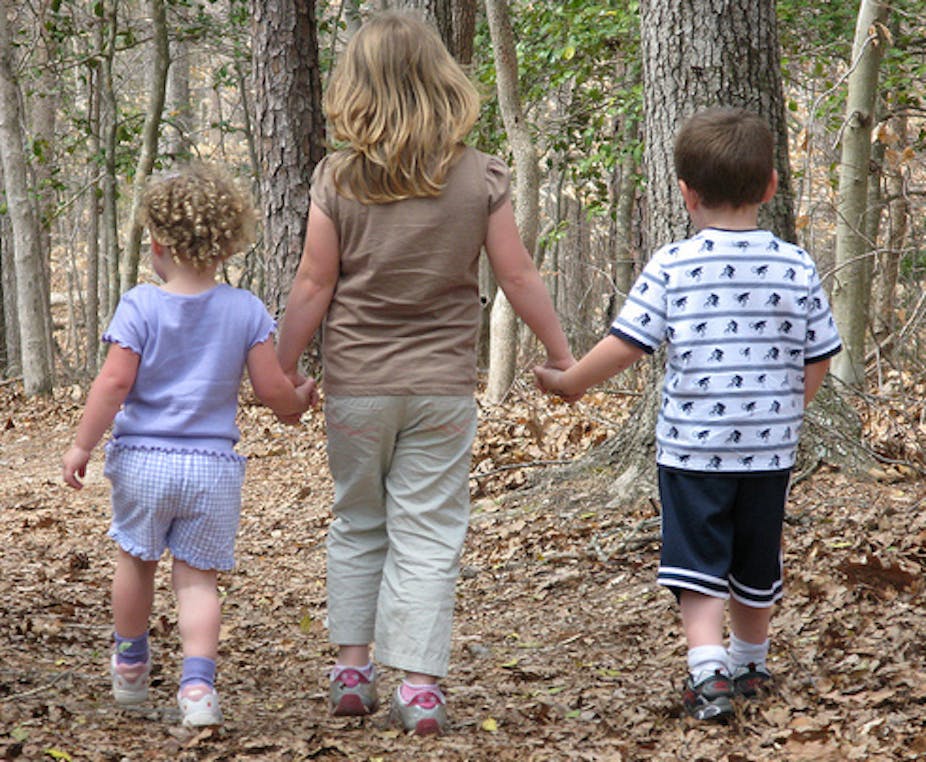A national Children’s Commissioner to champion the rights of Australia’s young people was announced last week by the Gillard government.
The long overdue announcement is a welcome development and should improve the protection of children’s rights in Australia. But we must wait to see the details of the position before we can determine whether there is genuine cause for celebration.
In particular, we will need to see the powers and functions that the commissioner will be given, and the extent of funding and resources that will be allocated to the role.
What is a Children’s Commissioner?
The commissioner, who has not yet been selected, will join six existing commissioners at the Australian Human Rights Commission (AHRC).
The six commissioners, including the Human Rights Commissioner, are charged with preventing discrimination on the basis of age, disability, race and sex as well as ensuring social justice for Aboriginal people and Torres Strait Islanders.
The absence of a Children’s Commissioner has been a notable omission from this array of AHRC experts, and there have been calls for this to be remedied for over a decade.
Australia now joins a growing list of countries that have established Children’s Commissioners or ombudsmen to better promote and protect children’s rights including England, France, Norway, Finland, Spain and New Zealand.
In making the announcement, the Attorney General, Nicola Roxon, stated that “The Children’s Commissioner will ensure the voices of children and young people are heard…”
She also noted that the role will include advocacy to “promote public awareness of issues affecting children, conduct research and education programs, consult directly with children and representative organisations as well as monitor Commonwealth legislation, policies and programs that relate to children’s rights, well-being and development.”
What is needed?
The announcement was cautiously welcomed by children and youth advocacy groups such as Save the Children and UNICEF. But they have also expressed some concern about the level of resources being devoted to the role.
Clearly an under-funded Children’s Commissioner is unlikely to be able to effectively carry out its mandate.
But funding is not the only issue. There are several other key principles that are essential to the success of a Children’s Commissioner.
First, the commissioner must be independent of government. The creation of the position by statute (yet to be drafted), and the positioning of the Children’s Commissioner within the AHRC, suggest the government recognises the importance of the commissioner acting independently.
Second, the work of the commissioner must be undertaken using a children’s rights framework. This requires that the commissioner’s work be informed by the UN Convention on the Rights of the Child and its core principles such as non-discrimination and the best interests of the child standard.
Third, children must be actively involved in the work of the commissioner, and must be regularly consulted regarding their views on issues being considered by the commissioner. Such views are to be given due weight according to the age and maturity of the children.
This reflects the right of participation set out in Article 12 of the convention and represents best practice when undertaking activities that affect children.
Although the commissioner must represent and advocate for all children, they must recognise and prioritise the need of children who are particularly vulnerable including, but not limited to, indigenous children, children seeking asylum, children with disabilities and children in conflict with the law. Indeed there have already been calls by some NGOs for the government to appoint a deputy Children’s Commissioner with a specific mandate to protect and promote the rights of Aboriginal and Torres Strait Islander children.
The commissioner also needs to work closely with state and territory counterparts to engage in strategic coordination of efforts and avoid counter-productive duplication.
Sound progress
It is too early to know whether the government intends to give the new Children’s Commissioner the authority and powers outlined above. But it would be disappointing if the role of commissioner was not established in accordance with at least these minimum criteria.
It should be noted that a review of Australia’s implementation of the CRC by the UN Committee on the Rights of the Child is scheduled to take place in just a few weeks.
The timing of the government’s announcement is likely to have been prompted by this impending review, since the Committee gave Australia advance notice that at the review it wanted the government to “provide information on progress, if any, concerning the establishment of a national commissioner for children and young people.”
The delegation to Geneva will no doubt be relieved to report that there has indeed been significant progress in this regard.
A version of this article appeared on the Castan Centre for Human Rights Law blog.

